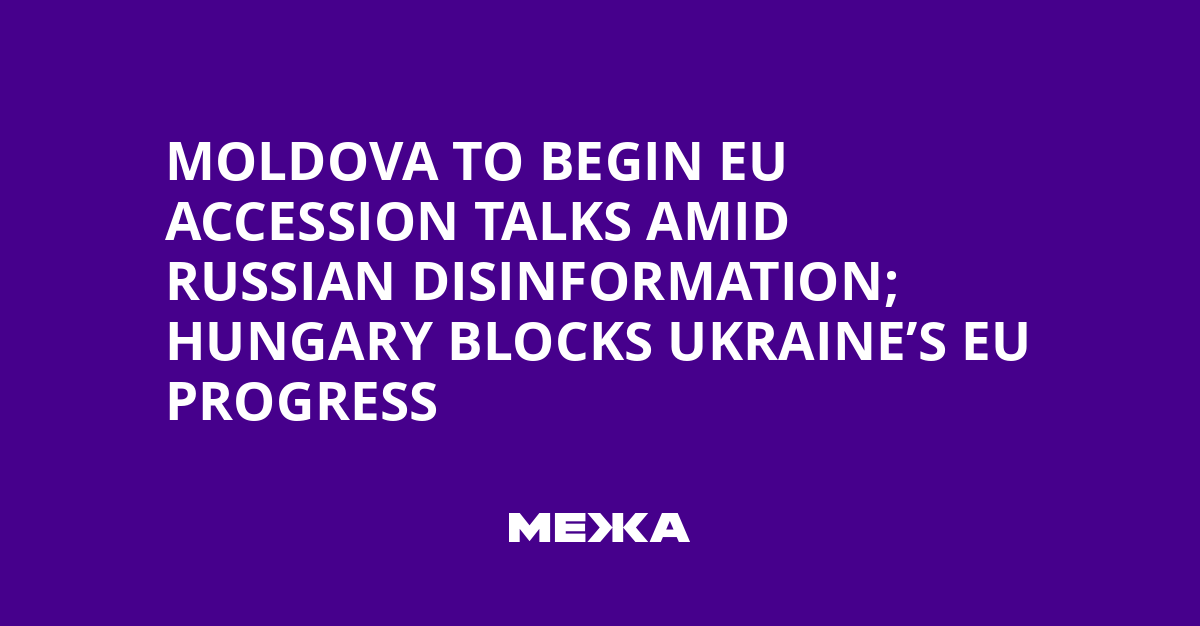As reported by Reuters, Moldova’s Deputy Prime Minister Cristina Gerasimova Reuters
Moldova intends to begin negotiations for joining the European Union before the parliamentary elections scheduled for September. This decision aims to counter Russian disinformation spreading in the country about the EU. This was stated in an interview with Reuters by Moldova’s Deputy Prime Minister, Cristina Gherasimova.
Negotiations for EU accession are divided into six thematic clusters covering various areas such as fundamental rights, economic policy, and foreign relations.
Gherasimova expressed hope that EU member states will find opportunities to open the first cluster both for Moldova and Ukraine in the near future.
“Time is critical for Moldova. On September 28, we will have parliamentary elections, where unfortunately disinformation plays a significant role, and most of this disinformation is directed against the EU.”
– Cristina Gherasimova
Pro-Russian politicians, media, and social media accounts actively spread information claiming that the EU is not interested in Moldova’s membership.
The Deputy Prime Minister emphasized the importance of demonstrating that by fulfilling its commitments, Moldova receives support from the EU, which will help refute negative narratives.
On July 2, a European Commission spokesperson announced that Moldova had completed bilateral screening on four clusters of the EU accession negotiations.
On June 26, during a European Council meeting, Romanian President Nicușor Dan stated that on July 4, the European Union would open the first cluster of Moldova’s EU accession negotiations. However, later an EU representative denied this information, noting that Dan was likely mistaken.
On June 27, Nicușor Dan admitted his mistake, explaining that he meant the meeting in Chișinău on July 4 – the “EU–Moldova” summit.
Hungary’s Blocking of Ukraine’s EU Accession
Since the beginning of 2025, Hungary has been blocking the opening of negotiation clusters for Ukraine’s EU accession. The country’s government claims that Ukraine’s membership in the EU would become a burden both for the bloc and for Hungary itself.
Hungary held a consultative referendum in which citizens were asked to assess “7 key threats” that the government believes could arise from Ukraine’s EU membership. These threats include economic risks, migration, impacts on the pension system, and jobs.
Additionally, the government sent letters to citizens urging them to vote against Ukraine’s EU membership during the referendum.
On June 26, Hungarian Prime Minister Viktor Orbán stated that he opposes Ukraine joining the EU because it could lead to the war spreading onto Hungarian territory. He also announced the referendum results, with over 2 million Hungarians participating and 95% voting against Ukraine’s EU membership.
Although this referendum has no legal force, Orbán uses it as a tool for political pressure on partners within the European Union.
The leader of Hungary’s opposition party “Tisza,” Péter Magyar, noted that only 600,000 Hungarians out of more than 9.5 million population took part in the referendum.
In Kyiv, this initiative is seen as political manipulation. Deputy Prime Minister for European Integration Olga Stefanishyna stated that this process is “a minor obstacle that will not prevent the start of negotiations.”
